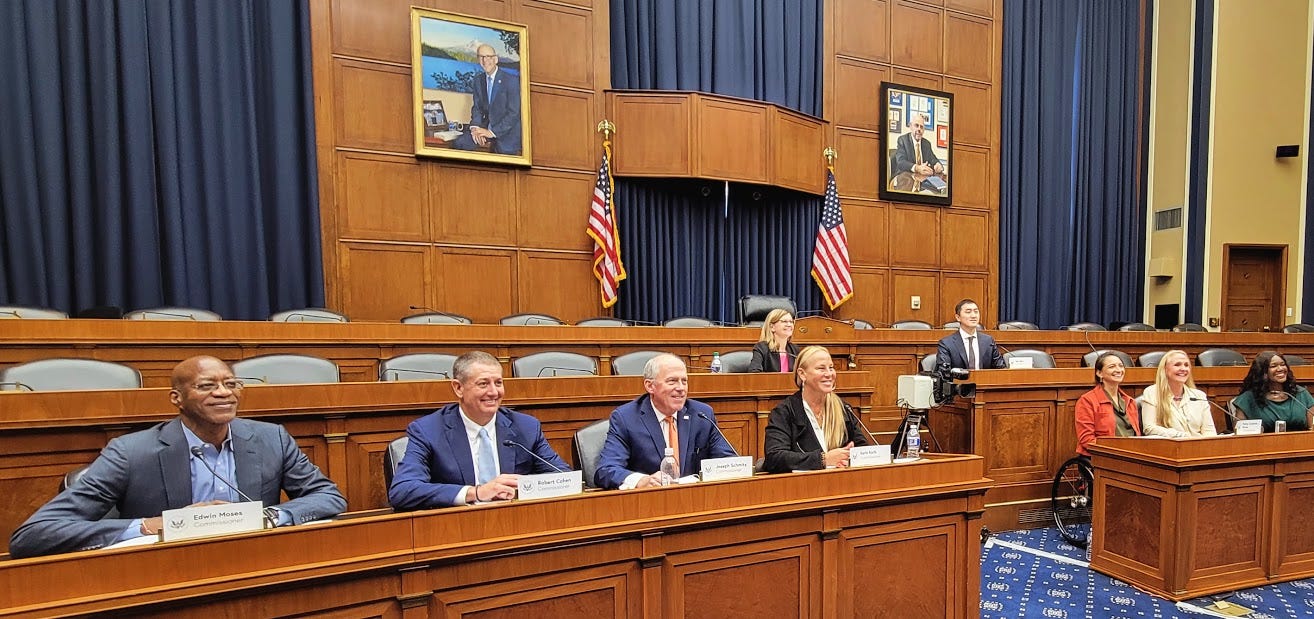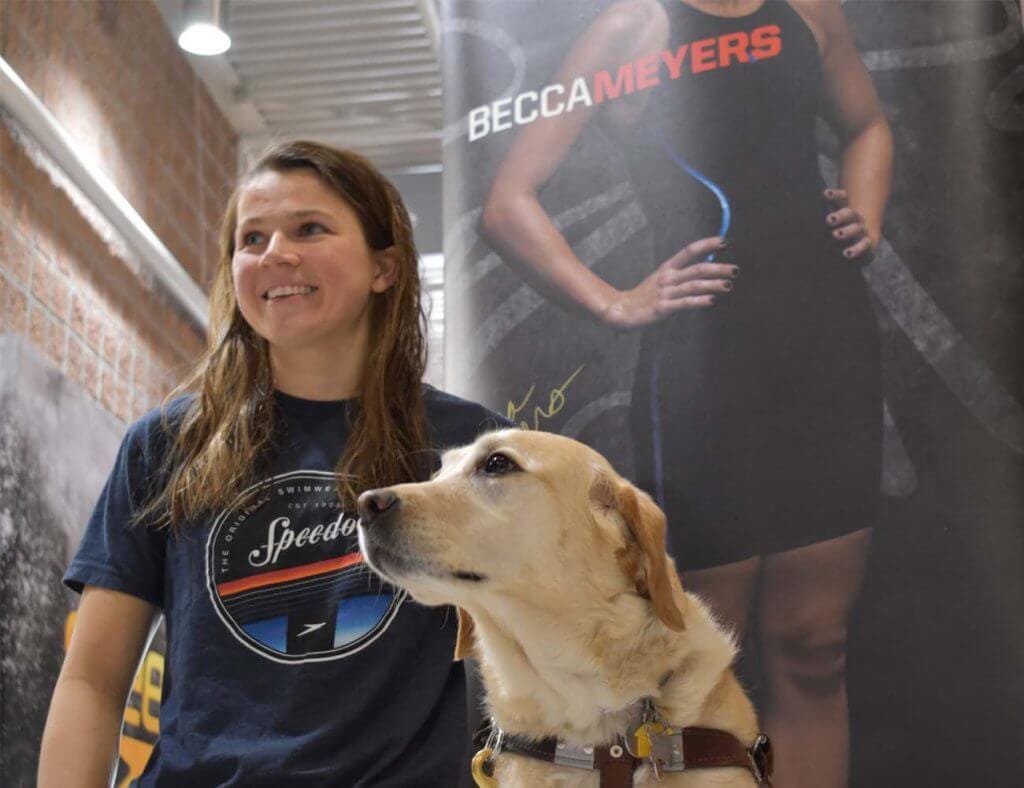Click here to read Part 1
“Being treated equally means people are given the same resources. On the other hand, equity allocates the appropriate resources to give everyone a similar chance to reach the same outcome. Athletes who can get by at the Paralympics without a personal care aide should do so, but Meyers needs one. Equal treatment, in this case, is beyond silly; it’s inhumane.”
Megan MacDonald, Professor of Kinesiology and School Head of the School of Exercise, Sport, and Health Sciences at Oregon State University, wrote the paragraph above in her 08-04-2021 opinion,” Op-Ed: If the Paralympics won’t model equity and inclusion, who will?”
She referred to Deaflympian/Paralympian Becca Meyers, who made national news by withdrawing from the 2021 Tokyo Paralympics after the United States Olympic & Paralympic Committee (USOPC) denied her accommodation request to bring her personal care assistant.
Oddly, MacDonald pointed out that the USOPC allowed breastfeeding athletes to bring their infants to the Tokyo Olympics and allowed the U.S. gymnastics team to stay in a hotel outside the athlete village.
Two months earlier, on June 24, 2021 (before the Meyers incident), MacDonald wrote another opinion, “The unequal path to elite athletic pursuits.” She concluded, “Disabled athletes need to be a part of the conversation. A Title-IX mirroring policy for collegiate students with a disability is overdue. It’s time to fully embrace equity, inclusion, and diversity for all collegiate students.”
Look at the last sentence-! Currently, the USOPC does not include athletes who are deaf and hard of hearing in the USOPC programs.
Therefore, it is time for the USOPC to choose:
Include Deaflympians in the USOPC programs, or
Dissolve USOPC DE&I.
USA Deaf Sports Federation President Jeffrey Mansfield testified before the Commission on the State of U.S. Olympics and Paralympics (CSUSOP) hearing on September 6, 2023.
“The first relates to access and compliance. While it is true that deaf and hard-of-hearing athletes can and do take part in the Olympics and Paralympics, the USOPC only tracks categories of disability that are covered under the Paralympics, and deafness is EXCLUDED.”
“Because of this technicality, Becca Meyers, a deaf-blind Paralympian, was denied reasonable accommodations and was pressed into making the decision to withdraw from the 2021 Tokyo Paralympic Games.”
Read my earlier issue about Becca Meyers
~~~~~~~~~~~~~~~~~~~~~~~~~~~~~~~~~~~~~~~~~~~~~~~~~~
CSUSOP Recommendations

In the 277-page Final Report, the Commission on the State of U.S. Olympics and Paralympics (CSUSOP) has recommended to Congress the following:
1) Congress should also study further the challenges faced by deaf and hard-of-hearing athletes and proposals to integrate deaf sports into the U.S. Olympic and Paralympic movement;
2) USOPC should work with the U.S.A. Deaf Sports Federation to remove impediments to its full use of Deaflympic trademarks and access to sponsorships.
~~~~~~~~~~~~~~~~~~~~~~~~~~~~~~~~~~~~
EQUITY (1978-1998)
Definition: the quality of being fair and impartial.
USO[P]C: Under the period of the Amateur Sports Act from 1978 to 1998, the United States Olympic and Paralympic Committee (USOC) treated athletes with hearing difficulties well.
The USOC delegates listened to speeches by Kathy Sallade, a Deaflympian swimmer who was the first Chair of the USOC Handicapped in Sports Committee in 1979 and 1980.
The USOC used the Colorado School for the Deaf and the Blind as a secondary facility for future Olympians in training.
The USOC permitted the 1985 USA-WGD to use the USOC Training Center in Colorado Springs before participating in the Summer World Games for the Deaf (renamed the Deafympics in 2001) Games in Los Angeles.
The USOC interviewed two Deaf applicants (Karen Boyd and Howard Gorrell) for the newly created position of Disabled Manager.
The USOC partly funded the expenses of the USA-WGD winter team to the 1997 Winter World Games for the Deaf in Yllas, Finland.
The USOC sent a USOC staffer to observe the 1997 Summer World Games for the Deaf in Copenhagen, Denmark.
Fortunately, the USOC distributed lots and lots of USOC Developmental Funds to the American Athletic Association of the Deaf (now USA Deaf Sports Federation), including a salary grant for the AAAD Executive Director.
INEQUALITY (1998-Present)
Definition: difference in size, degree, circumstances, etc.; lack of equality.
USOPC: Since the enactment of the Ted Stevens Olympic and Amateur Sports Act of 1998, the USOPC closed the doors for athletes who are deaf and hard of hearing.
The USOPC stopped distributing the USOPC development grants to the USA Deaf Sports Federation in 2003.
The USOPC has not yet recognized the “Deaflympics” despite the International Olympic Committee’s recognition in 2001.
The USOPC has no Deaf employees at the Headquarters and the Training Center.
Etc, Etc.
EQUALITY (Post CSUSOP Report)
Definition: the state of equality, especially in status, rights, and opportunities.
USOPC: The current USOPC has yet to comply with the CSUSOP Recommendation No. 2.
Nitra Rucker, USOPC Vice President of Diversity, Equity, and Inclusion and Talent, has not replied to my three emails (June 12, 2023, June 19, 2023, and July 22, 2023.) Naturally, I happen to be deaf.
JUSTICE (?????)
Definition: just behavior or treatment.
USOPC: The only possible way is to see that Congress would amend the Deaflympics into the Ted Stevens Olympic and Amateur Sports Act for the sake of the future Deaflympians.
Howard “Howie” Gorrell attended 13 of the last 14 Deaflympics since 1969 and is a 2004 recipient of the USADSF Jerald M. Jordan Award, given to those who exhibit leadership and continuous participation toward the goals of the Deaflympics and the 2011 Art Kruger Award for demonstrating leadership and constant participation, support and contribution in the USADSF over an extended period.







